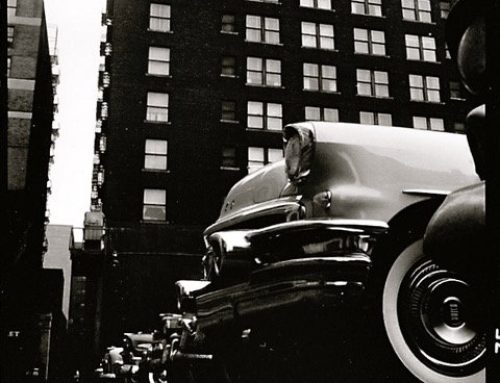By Toby Barlow
Detroit wants writers the way the desert wants rain. The city has always shown a great capacity to love and appreciate the arts, as our Diego Rivera mural in the Detroit Institute of Arts and our Motown Museum both prove to visitors daily. But the literary arts have never received quite the same love as the visual and musical arts. They are a distant third.
This is partly due to the fact that our city doesn’t have anything like Columbia University, or Stanford, or Brown–that is, a large dynamic educational institution with an oversized literary reputation. [blocktext align=”left”]Not just here, but all over the world, writers have been getting kicked in the teeth. [/blocktext]Also, like other cities everywhere, its newspaper business has been wracked by the devastatingly negative effects the Internet has wrought on publishing, which has diminished coverage and criticism of the literary arts in Detroit.
In fact, not just here, but all over the world, writers have been getting kicked in the teeth. While art auctions command ever-higher prices and musicians continue to fill stadiums, writers suffer the shutting down of bookstores and independent publishers. For over a decade now, authors and journalists everywhere have endured a kind of economic devastation that echoes Detroit’s crisis, only without as many headlines. Probably because we don’t photograph as well.
So maybe it’s time to join forces.
Write A House is our writers-in-residence program in which the writer keeps the residence, forever. We buy homes for next to nothing (we got three so far for $2,000) and then we renovate them, using the homes as classrooms for vocational education that teaches Detroit kids lifelong skills in building and renovation. [blocktext align=”right”]We award the homes to the writers, to keep.[/blocktext]Then we ask writers to apply, judging their applications by the quality of their writing and their potential for engagement with the neighborhood. Finally, we award the homes to the writers, to keep.
The Write A House project attempts to do the same thing that other successful arts projects in Detroit have done: leverage a perceived negative–in this case, available empty housing stock–into a strength.
We’re working in neighborhoods that are rich and vibrant, a robust mixture of immigrants and longtime residents, where a writer might find a lot of inspiration and connection, if that’s what they’re looking for. The first homes we’re working on are in the neighborhood just north of Hamtramck, an old Polish community where numerous galleries are popping up. Our plan is to group the homes in clusters, no more than a few blocks apart, so that the writers can build community with one another.
We are working in other ways to make sure the writers have a soft landing in their new homes, whether they arrived here from Sacramento or Sweden or the southwest side of Detroit. We’re providing introductions with the local schools, colleges and university, along with a bouquet of contacts in the broader business and cultural community. We don’t want the writers to feel any pressure–they are free to write and live as they want to–but we also want them to feel connected with this city.
Metaphors are never absolute. Detroit is not a desert. There is a good writing community here in the city already, growing more vibrant everyday. Organizations like InsideOut and now 826 Michigan are doing important work. Writers like dream hampton, Anna Clark, Shaka Senghor, and Jamaal May are creating dynamic and inspiring journalism, fiction, history, and poetry. Write A House is only trying to add much-needed energy, some additional centripetal force to pull what is already here into a stronger center.
Like any experiment, we’re not sure of the outcome. We weren’t even sure when we began if writers would even be interested in a lifetime writing residency in Detroit. But in the first 24 hours of launching our Indiegogo campaign, over 200 writers contacted us, telling us they would like to know more about the opportunity. Perhaps they sense the stories are lurking here. Perhaps they want to be a part of the unique, un-homogenized community that Detroit is today. Or perhaps they simply need a home.
Toby Barlow is the author of Sharp Teeth and Babayaga. He lives in Detroit.







I’m very curious about the economics and legalities of the project. How much do you expect it to cost to get the house “80% habitable”? Have you personally been involved in similar rehabilitation projects before? What were the figures for that? How did those properties compare with this one in condition and location?
What specific vocational program are you working with? How are you handling workplace safety and security? (Building supplies don’t last long overnight in many neighborhoods.) If someone gets hurt on the site, whose responsibility is it? How do you define “80% habitable”? Will there be help for the recipients to get the other 20% done? (By definition, they can’t live in it until it’s 100% habitable.)
I’m frankly skeptical, and sincerely hope that these are questions you’ve considered — and can solidly answer. I’d love to see the project succeed. Cheers,
–Tom
I see that some of my questions are answered on the Indiegogo page, although not on your main site.
* The vocational program is Young Detroit Builders, http://www.youngdetroitbuilders.org .
* The Indiegogo campaign is for $25,000, which you say should take you halfway to your goal; i.e., you’ve budgeted $50,000 for the home’s rehab. I assume that includes all administrative costs and such. Is that accurate? How much of that money will go toward rehab?
I feel a bit better knowing those facts. (You may want to move them to your main site. 🙂 ) The amount of money is adequate, and it looks like YDB is well set up for this kind of project. Good luck.
Thanks for your questions Tom.
Yes, we are partnering with Young Detroit Builders, who are also our 501c3 umbrella. We are also working with a locally respected, licensed contractor.
As for administrative costs, so far we’ve done this through volunteer efforts of the board and other interested folk. It would be nice if we could get the project up to a scale where the organization can cover a person to manage grants, organize the author submissions, and coordinate with the contractor and YDB. The estimate for renovating all three homes we own adds up to about 160k, so I would assume we would be looking to pay someone about 35k.
As for legalities, we worked long and hard with our friends at the law firm of Clark-Hill to make sure this thing was buttoned-up.
As for the 80% habitable, it’s really an arbitrary number that promises heating, electricity, windows, insulation, floor and no holes in the wall. We just don’t want to promise “perfection” because then people show up and wonder why you haven’t painted the pantry or something and we wind up being landlords with unhappy tenants, which is not what we’re looking to be. “Under-promise and over-deliver” is high on our list of mottos.
Lemme know if I can help answer anything else. Thanks! Toby.
Thanks for the details. My main concern was that this was a pie-in-the-sky initiative that wasn’t grounded in reality. (E.g., “Hey, we bought a house for $2,000! Let’s cleun up the trash and move right in!”) I’m glad to see that’s not the case.